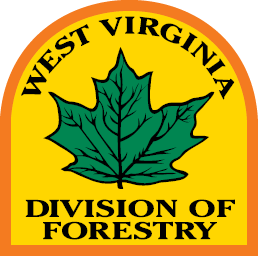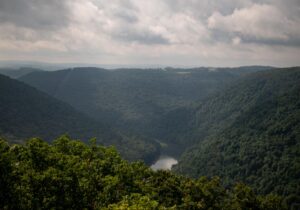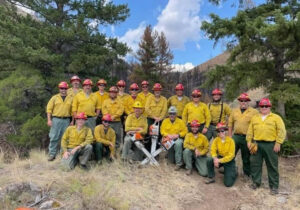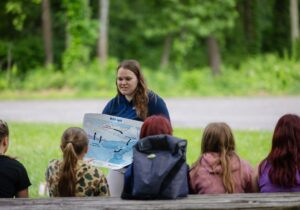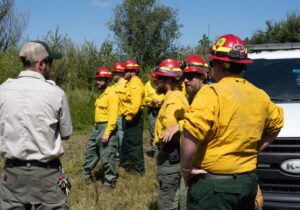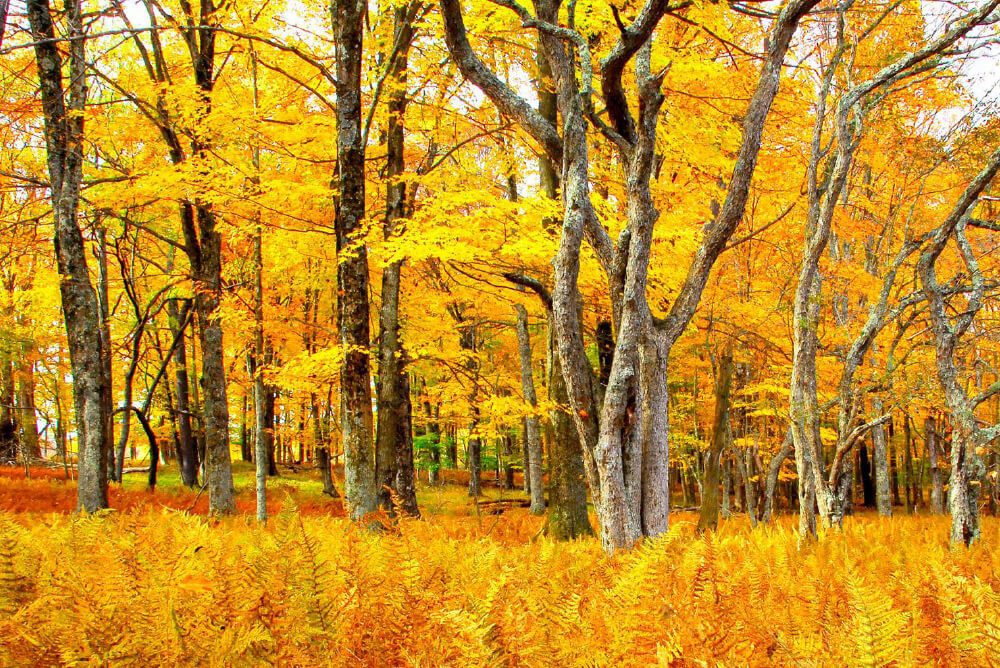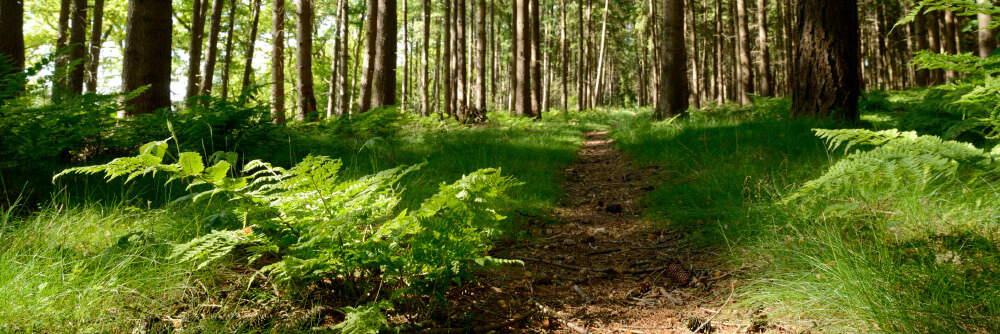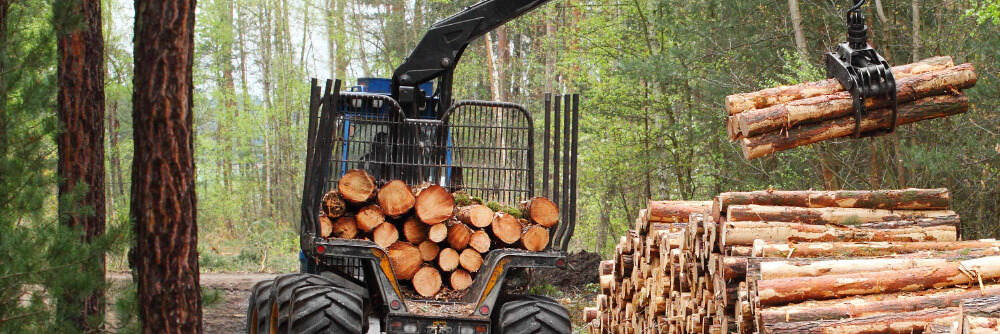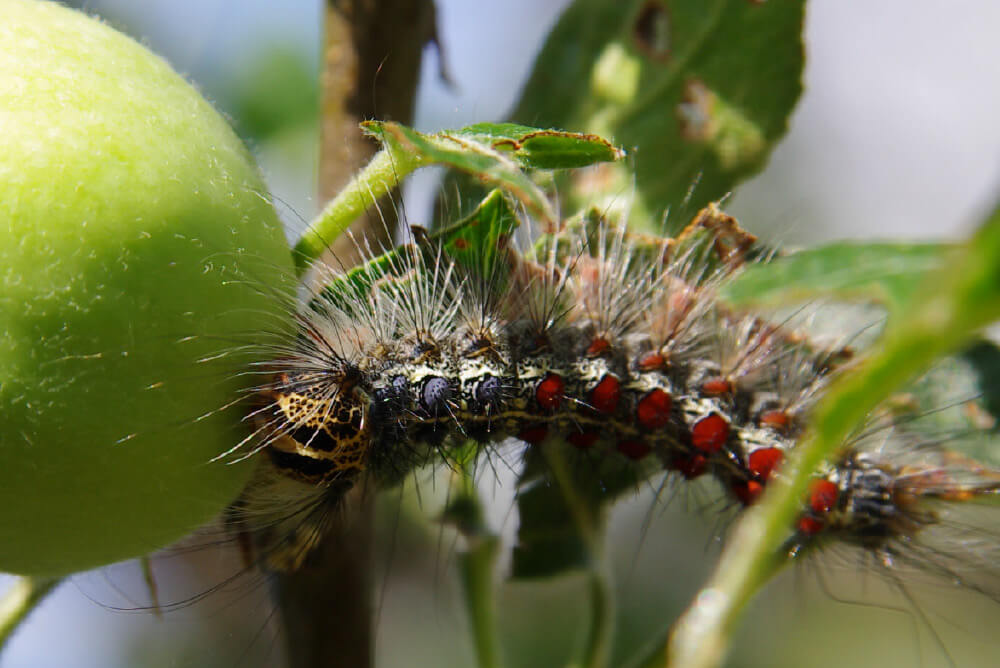In compliance with current safety measures to guard against the spread of the coronavirus, the schools and training classes cited in this blog are not currently offering in-person summer sessions. Many schools offer classes online. Check with the college, university or agency of your choice for the most current and accurate details regarding which classes are or will be offered online.
Even amid concerns about the coronavirus, West Virginia foresters remain on the job, suppressing wildfires, regulating logging and handling timber harvesting issues. Landowners can still contact their local service forester for assistance.
The state Division of Forestry offers instruction for students, foresters, loggers and you
Smokey Bear can’t protect 11.9 million acres of West Virginia forests alone.
That’s why the West Virginia Division of Forestry places a priority on education. The division promotes wise stewardship and sustainable use by educating students, professional foresters, the timber industry and the public.
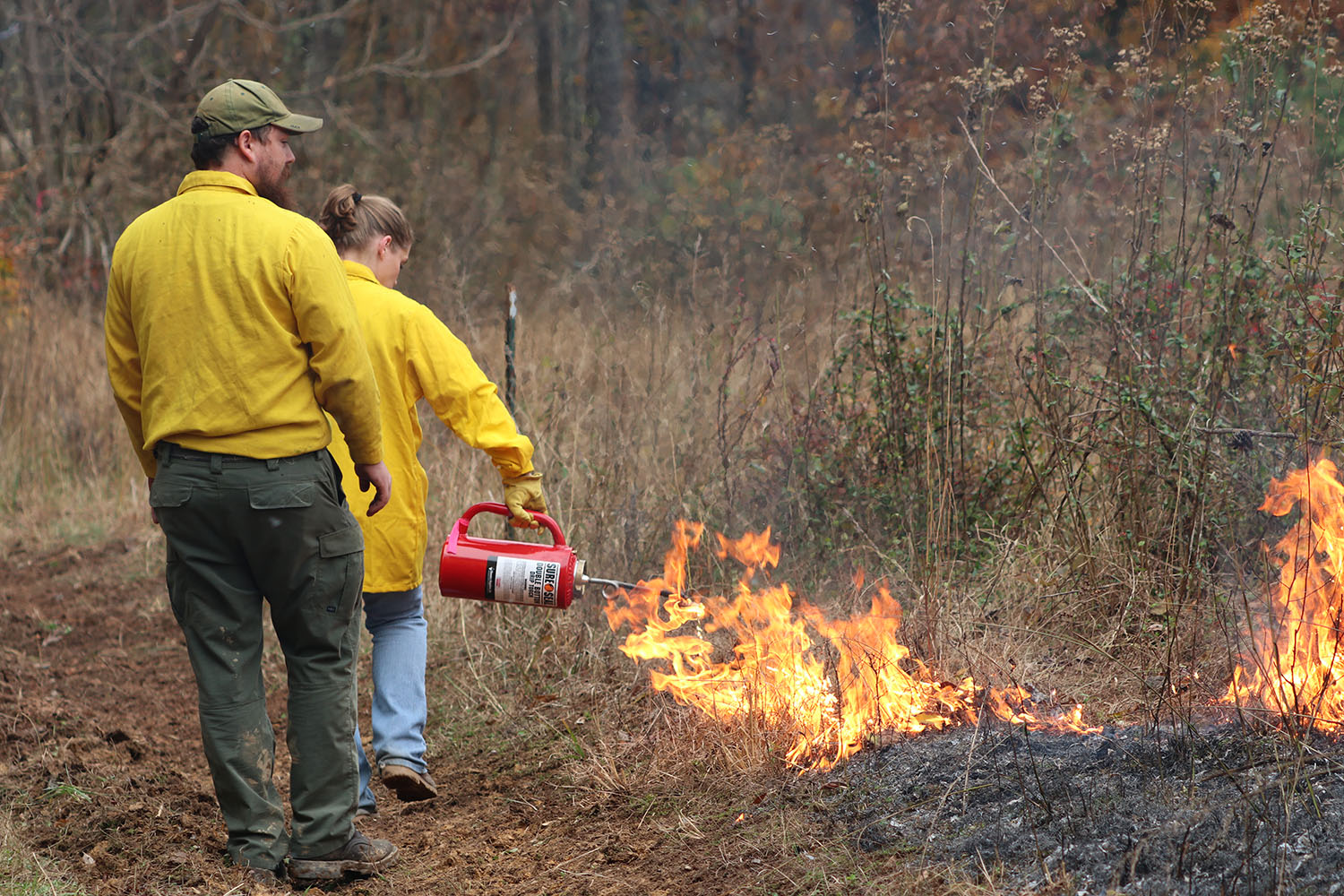
Students learning fire operations and how to use the equipment in a control burn setting to manage timber on the college property.
Meeting Forestry educational standards is no walk in the woods
The Division of Forestry requires registered professional foresters to earn a bachelor’s degree in forestry from a four-year college accredited by the Society of American Foresters. A registered forester technician must have an associate degree from a two-year technical forestry program accredited by the Society of American Foresters.
The Society of American Foresters is the national scientific and educational organization representing the forestry profession. Both West Virginia University (WVU) in Morgantown and Glenville State College in central West Virginia are accredited/recognized schools. WVU’s Division of Forestry and Natural Resources has four programs of study Energy Land Management; Forest Resources Management; Wood Science and Technology; and Recreation, Parks, and Tourism Resources are accredited by the Association of Professional Landmen, Society of American Foresters; and the Society of Wood Science and Technology, respectively.
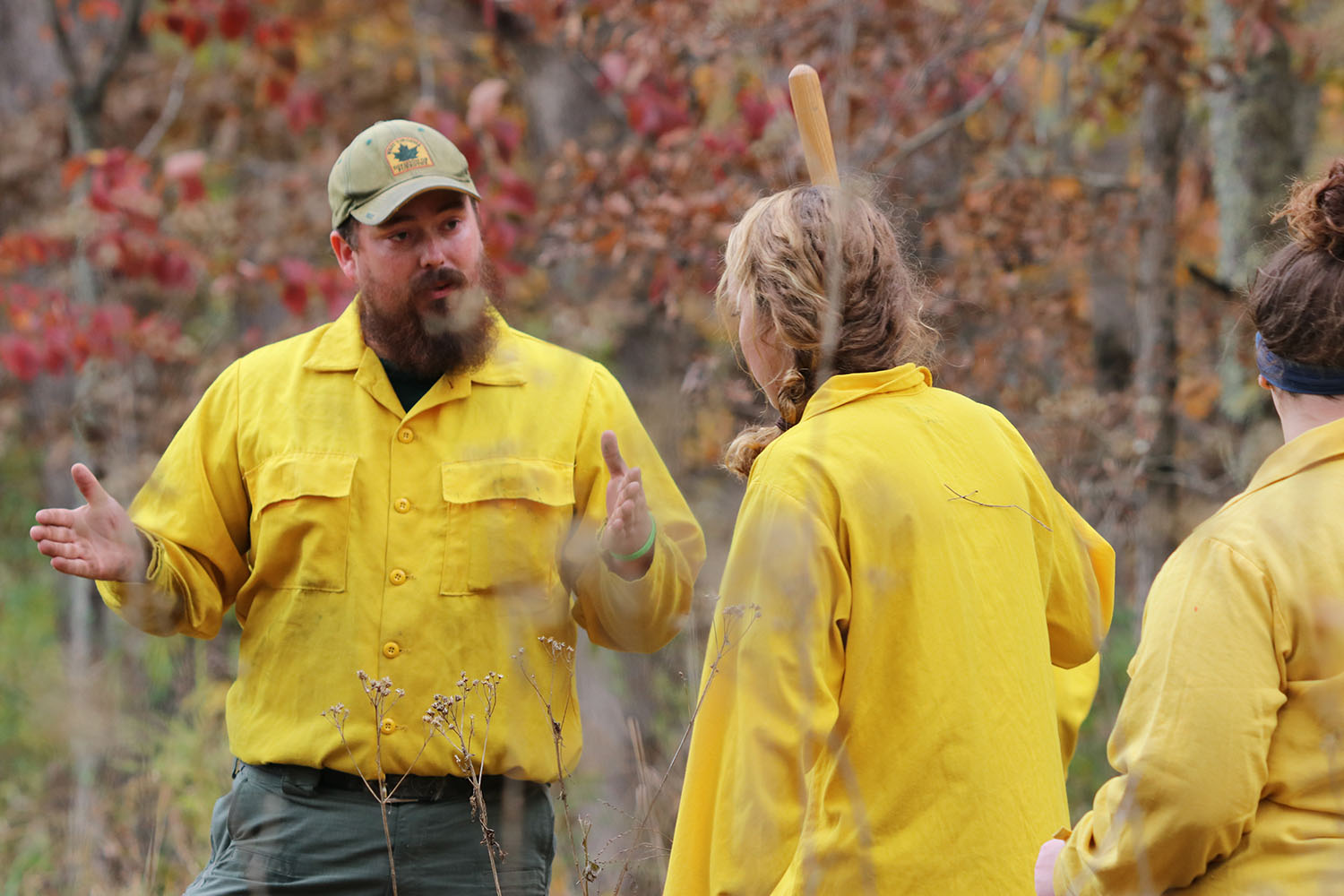
Jesse King describing the role of leadership on the front line and how communication is important to the crew she is leading.
Forester Jesse King links school and profession
Jesse King grew up in Gilmer County. His interest in forestry grew naturally from his family’s background in logging. Jesse graduated from Gilmer High School and started college when an economic recession closed many sawmills. Now King is a service forester in the Division of Forestry’s Region 6, covering Gilmer and Calhoun counties.
King joined the state Division of Forestry in December 2015. As part of his forester duties, he collaborates with Glenville State College on programs and training. The college helps Forestry by loaning equipment for training exercises, available classroom space to teach, and office space.
“The Glenville State College forestry program was started by some of the best foresters in the field at the time,” King said. “The school built it into a recognized forest technology program. The college and its professional staff have created an outstanding program for hands-on education, research, and applied forestry.”
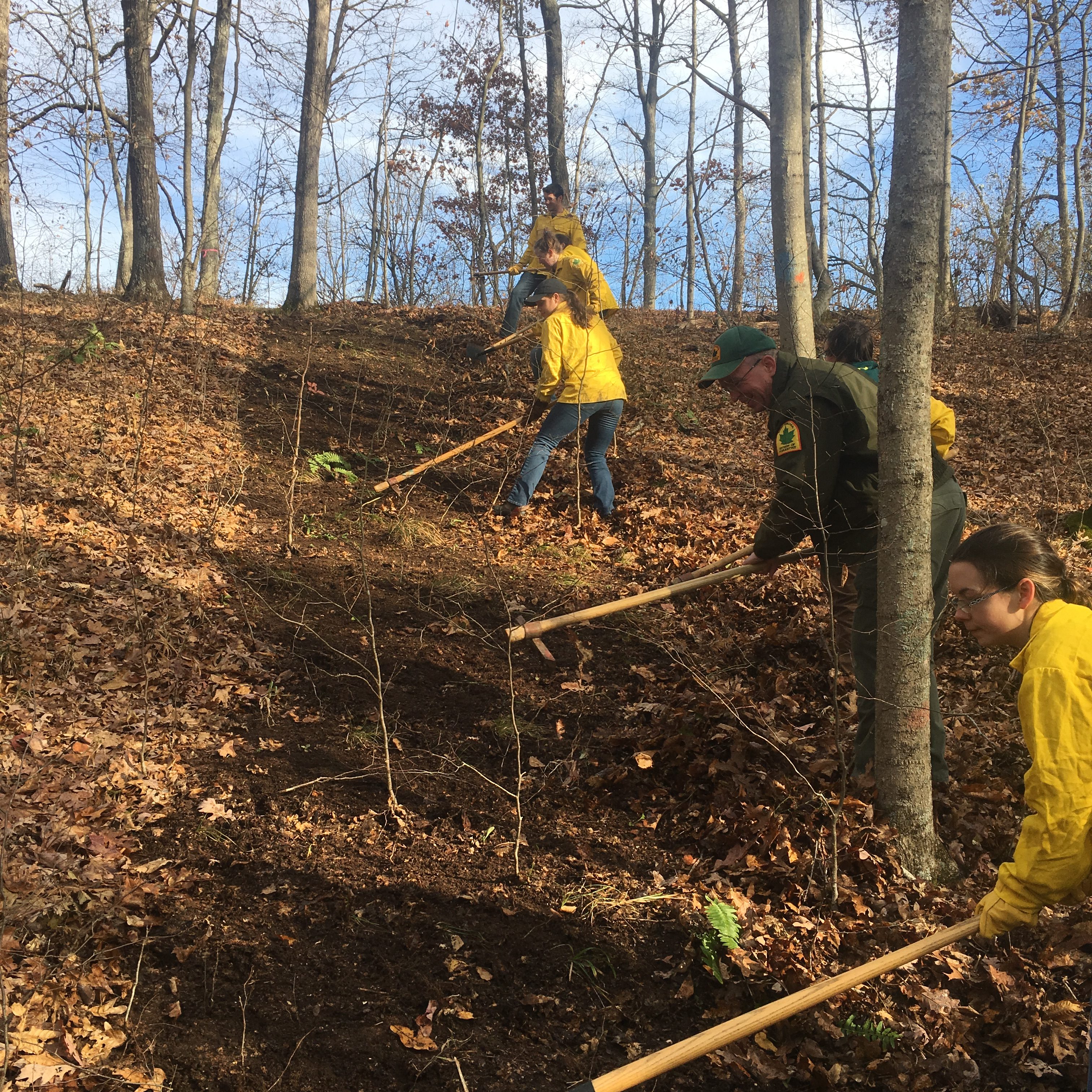
students are constructing fire lines for suppression of wildfire activities as part of the S130/S190 training
Field duties range from landowner advice to wildfire control
Forest technicians conserve and protect woodlands. Their duties include fire suppression, data collection and regulation enforcement.
Professional foresters help manage forests for commercial, recreational, wildlife or similar uses. The duties of a service forester include:
-
Landowner assistance. The Division of Forestry is the leading agency providing technical forestry assistance to non-industrial private woodland owners. A forester can provide landowner with advice on management practices and additional technical and financial resources.
-
Logging. Foresters work with loggers on safety, management practices, licensing, how to protect water quality by decreasing logging sediment and other services.
-
Wildfire control. Foresters enforce fire regulations to prevent wildfires. In case of wildfires, foresters are among the first responders on the scene.
-
Education. Foresters take part in educational programs such as fire prevention presentation for elementary schools, chainsaw safety classes for loggers, and wildfire fighting skills.
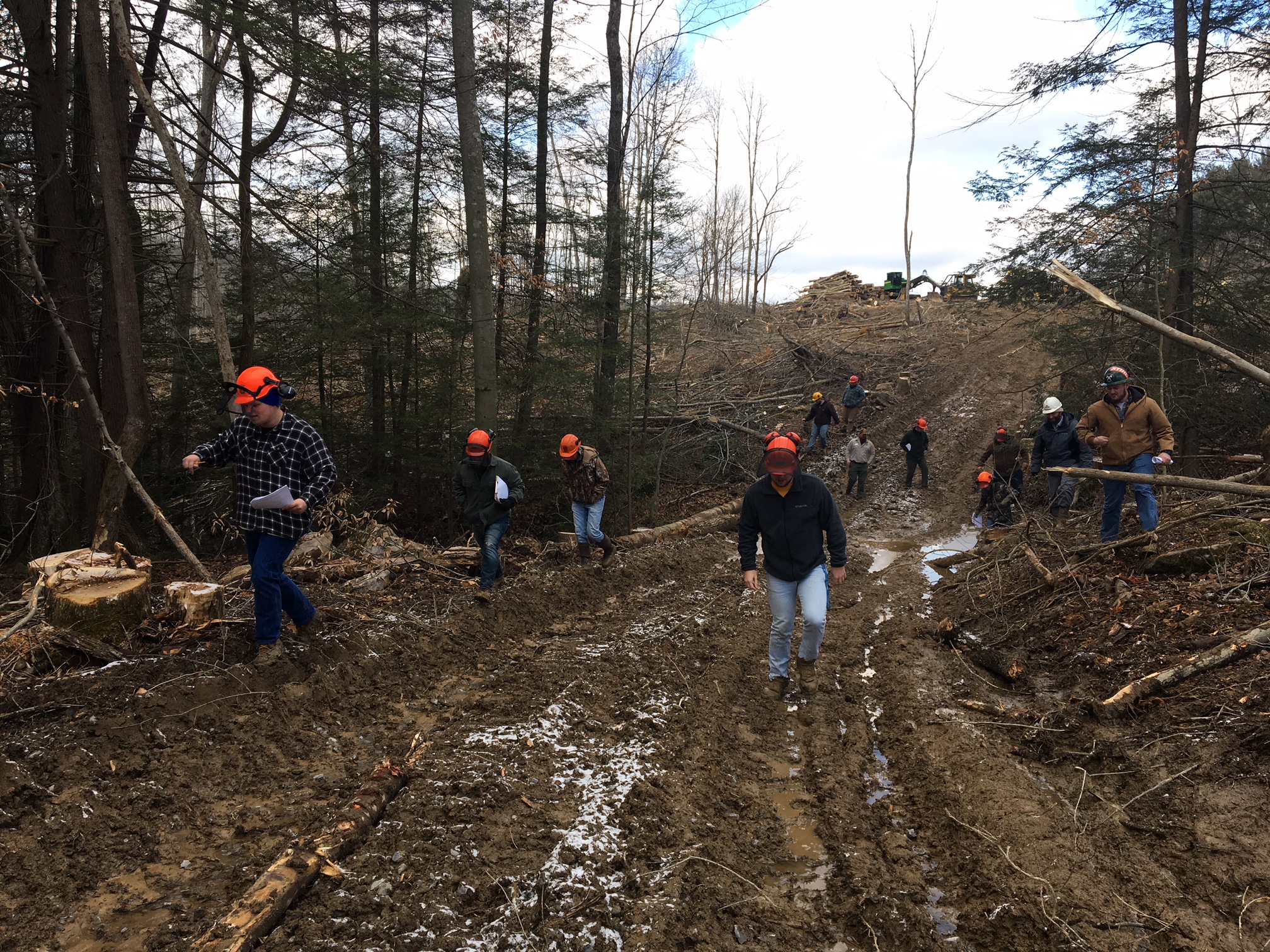
Students conducting a logging inspection on an active harvesting location.
Teaching future foresters and the public
Forestry school activities include Smokey Bear fire prevention presentations, STEM (Science, Technology, Engineering and Math) programs and Project Learning Tree. The division also offers educational and safety programs for foresters, private landowners and the timber industry.
Project Learning Tree. The national Project Learning Tree aims to transform learning environmental science into a fun and exciting experience, in and out of the classroom. The program provides teachers and parents with training, lesson plans and resources to engage children from preschool through grade 12.
College courses and certificates. King has worked with Glenville State College to add subjects to make the certificate programs more hands-on and a required part of students’ educations.
A graduate of the Glenville State College forest technology program will learn plant identification, basic statistics applied to forest measurement and sampling design, how to prepare sites, improve regeneration and other essentials. In addition, the student will receive the following certifications with which the state Division of Forestry is associated:
S130/S190: Glenville presents S130/S190 courses during fall semester. The training meets the fire behavior training needs of a Firefighter Type 2. The S130 basic firefighting training is typically taught in conjunction with S190, which focuses on the start and spread of wildfire and the recognition of potentially hazardous situations. The S130/S190 training involves live fire field exercise.
Red card: In the spring, the Division of Forestry conducts the red card certification test in various locations in the state. The test, which includes a 3-mile hike with a 45-pound pack, is required by every federal agency before the applicant will be issued an Incident Qualification Card (red card). Completion of this with the S130/S190 allows individuals to be available to fight fire as part of a Western firefighting crew.
FI-110: The FI-110 certification, offered during the Glenville’s fall semester, teaches wildland fire behavior, determining cause and origin, protecting the scene and conducting interviews and investigations. The training is recommended for all first responders, including law enforcement, prevention technicians and field resource positions in fire forestry.
Logging certifications: West Virginia requires loggers to be certified. Loggers are responsible for harvesting timber safely without damaging forest vitality or water supplies. The Division of Forestry is the enforcing agency for logging.
Forestry is part of the Logging Sediment Control Act (LSCA) Program training at Glenville State College. This includes:
-
Fall semester: Chainsaw and timber felling safety that comply with OSHA regulations, hands-on session.
-
Spring semester: Best management practices cover clean water, soil conservation, established vegetation and aquatic life. It also includes regulations for timber harvest operations.
All forest technology majors and loggers in the state must be certified in first aid and CPR. This course is mandatory for forest technology majors.
“These courses and certificate programs are aimed primarily at future foresters,” Jesse said. “However, if a member of the public wants to take any of our safety courses, they would be welcomed.”
“The Division of Forestry is dedicated to education, from elementary schools to fire departments,” he said. “Yes, it’s important for foresters to understand forests, but it is also important that the public does too. We all have to understand the forest to understand why we must preserve it and how we can protect it.”
For details on educational programs and contact information, visit wvforestry.com.
# # #
